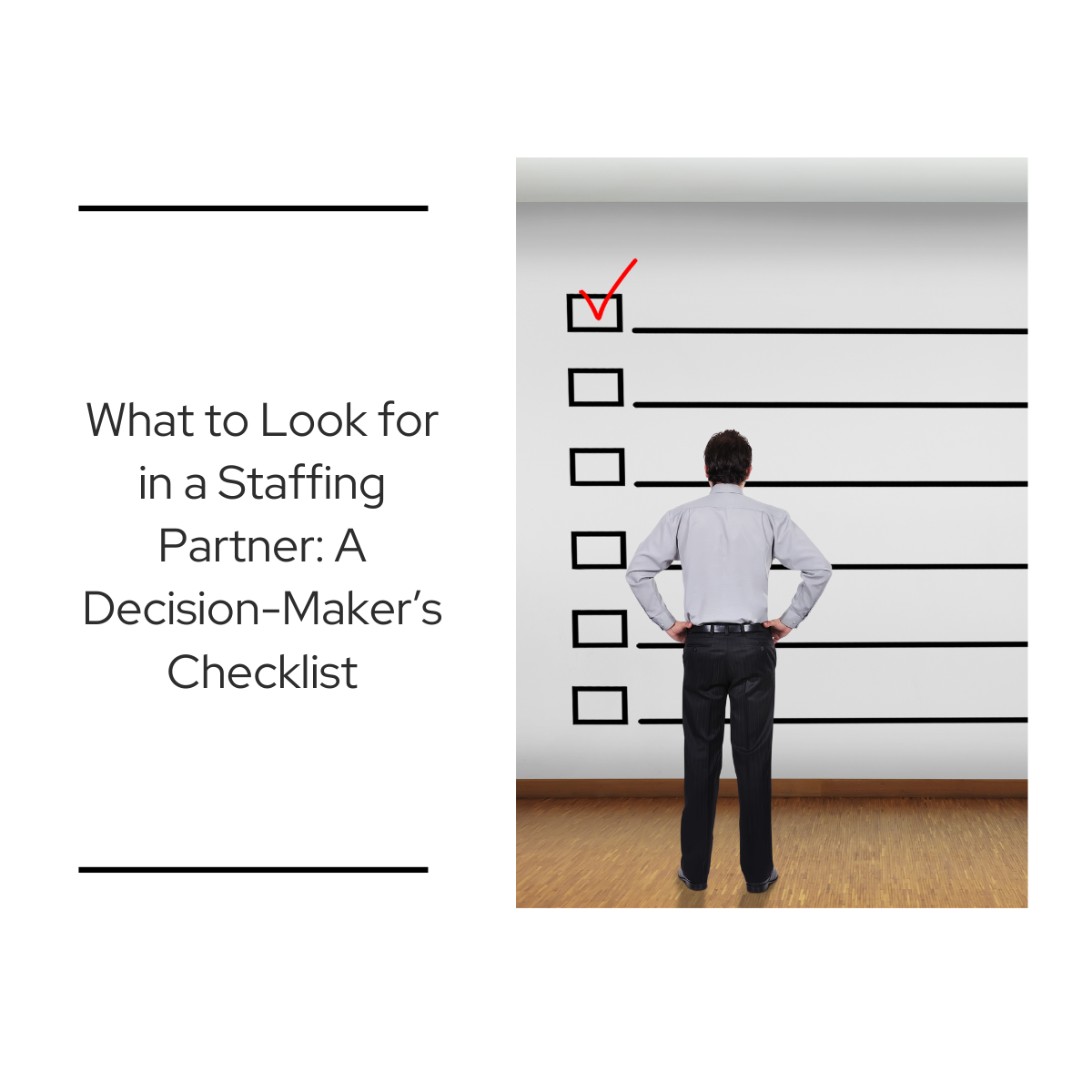Choosing the right staffing partner is one of the most important decisions for leaders in manufacturing and distribution. Knowing what to look for in a staffing partner can help you avoid miscommunication, high turnover, and slow response times, all of which cost more than they appear.
Here we offer a practical checklist to help decision-makers evaluate whether their current staffing provider is just filling orders or acting as a true extension of their team.
Key Areas to Evaluate When Reviewing Your Staffing Partner
1. Do They Understand Your Industry?
A strong staffing partner should have experience in your specific environment, whether that’s food manufacturing, light industrial work, or high-volume distribution. They should know what it takes to perform well on the floor, from physical job demands to safety and compliance protocols.
If you are constantly re-explaining your workflow or production challenges, it may be time to reassess how well your staffing partner understands your operation.
2. Are They Tied Into Your Local Market?
Pay rates, competition, and candidate expectations vary by region. Your staffing partner should be aware of changes in local or state employment laws, regional wage shifts, and evolving labor trends.
Ask yourself this: Are you chasing them for updates, or are they coming to you with proactive information? The best partners act as your eyes and ears in the local hiring market.
3. Is Communication Consistent and Clear?
You should have a dedicated point of contact who knows your team, understands your shifts, and checks in regularly. A reliable partner doesn’t just return calls when something goes wrong. They reach out before problems escalate and keep you informed every step of the way.
If you’re routed through a rotating list of contacts or call centers, that lack of continuity may be holding your operation back.
4. Are They Flexible With Staffing Models?
Your business changes week to week, season to season. A good staffing partner can shift with you. Whether you need temp, temp-to-hire, direct hire, or even onsite support, flexibility is key.
A rigid, one-size-fits-all approach often leads to overstaffing, understaffing, or misalignment between your goals and the team showing up on the floor.
5. Do They Prioritize Quality and Retention?
It’s not just about filling roles. Your staffing partner should care about whether those workers stay, show up reliably, and perform well. Ask what their average turnover looks like, and whether they track associate performance beyond the first week.
Retention is often a reflection of how well candidates were screened and supported from the beginning.
6. Are They Supporting Your Team, Not Just Supplying It?
A true staffing partner acts as an extension of your HR team. They help with onboarding, communicate in your associates’ preferred languages, and provide coaching or feedback when needed.
Most importantly, they challenge you to think forward. They bring ideas to the table, ask about upcoming needs, and help you plan—not just react.
Red Flags to Watch For
- High turnover or frequent no-shows without explanation
- You have to request basic updates or labor market information
- Your only contact is a general customer service line
- They never ask questions about your business goals or forecasted changes
If these sound familiar, it may be time to reevaluate who you’re partnering with and whether they are supporting your long-term success.
Final Thought: A Staffing Partner Should Add More Than Headcount
The right staffing partner helps you create stability, reduce risk, and improve day-to-day operations. They do not wait to be told what’s needed—they collaborate, communicate, and contribute.
If your current partner is just filling orders, it may be time to find one who helps you move forward. Contact us today to discuss how we can help.


